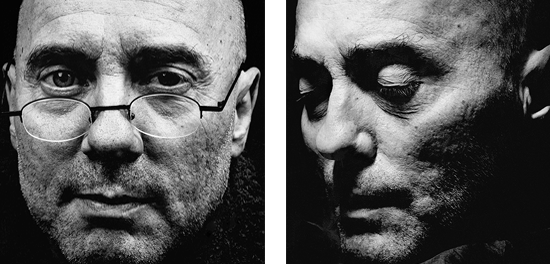This article is the third in a four-part series on what in Buddhism is called the “four sights” or “divine messengers.” Some traditional biographies describe these sights—an old man, a sick man, a corpse, and an ascetic—as what compel the Buddha-to-be to lead a spiritual life. The first part, “Taken Away and Given: Encounters in Old Age,” can be found in the Fall 2015 issue; the second, “The Body as Battleground: Encounters with Sickness,” can be found in the Winter 2015 issue. The last part will appear in the Summer 2016 issue.
—The Editors
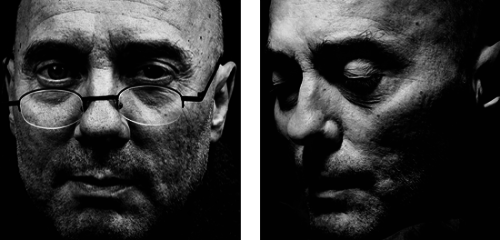
1
The great Zen master Kyozan Joshu Sasaki Roshi in his eighties was ill and in the hospital, but, hearing that one of his earliest Western students was dying, he left and took an airplane across the country to see her.
“Roshi, I’m so afraid of dying,” she said.
“That’s irrelevant now,” he replied.
She nodded.
2
Beneath endless blue skies, hidden in recesses of the vast steppes’ rolling plains, stand the Cities of the Dead. Near small lakes and streams, but far from any roads, stand dozens of walled cities with their silent occupants. Their gates are open, but limestone walls surround the ornate buildings crowded within. Above the carved stonework float turquoise domes and sharp gold minarets. The facades are decorated with stone galleries and painted murals of the stern-faced occupants in their white turbans and long red robes. Other mausoleums are decorated with copper intaglios of the deceased. Bronze statues of angels and rearing horses surmount pointed towers. Craftsmen come from afar to build these structures. The deceased are installed with lavish feasts and ceremonies. Afterward, the living do not visit here. They do not interfere with the ways of the dead or bother them in their new abodes. They allow the buildings to crumble and the occupants to return to the earth.
Travelers who chance to come upon these cities see them sparkling in the distance and are drawn by their splendor to visit them. They find as they come closer that the cities diminish in size, and when they stand at the cities’ gates, they cannot enter. No matter how small the living visitors may be, they are much too large.
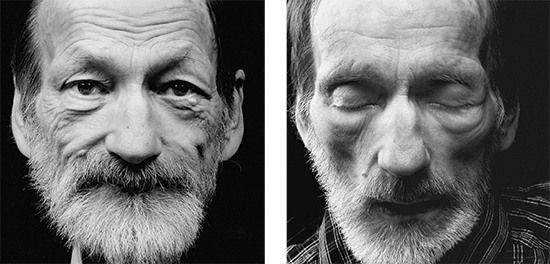
3
In the Tibetan text called the Bardo Thodol, or Liberation Through Hearing in the Intermediate State, it is said that at certain points between death and rebirth our consciousness is overwhelmed by the all-encompassing brilliance of the awakened state. Simultaneously we become aware of more comfortable, more pleasant and familiar shades of muted lights nearby. The text urges us to avoid these and to surrender into the vast and uncompromising brilliance of what is actually our own mind.
4
Now Prince Siddhartha again returned to his former princely preoccupations, but he could not so easily forget that he had seen that all are fated to endure old age and sickness. Again he grew restless and ill at ease. He wanted to know more of the fate of those who live in this world. He summoned his chariot and once more set forth.
This time, he saw a procession of men and women weeping. On their shoulders they carried a stretcher. On it was the form of a woman wrapped in cotton, shrunken, brittle, motionless. Her face was gray, her mouth open, but she did not breathe. Flies crawled in and out of her nose, but she did not react. She was rigid and lifeless as a stick of dried wood. Those carrying her and all those in the procession were weeping and crying.
The Prince asked:
“What is that thing in the shape of a deformed woman? It is rigid and immobile and must be carried by others. It is followed by a small crowd wailing and wearing white clothes. What is this being? She does not seem to suffer. What is she doing?”
The charioteer replied:
“My lord, she has neither intelligence nor feeling nor breath. She sleeps without consciousness, like grass or a piece of wood. She is insensitive to pleasure or suffering. Friends, family, enemies, all have no meaning for her. Her consciousness no longer animates her body. Sire, she is dead.”
The prince was troubled. He said, “Is this woman the only one stricken in this way?”
The charioteer answered: “No. This is the end that awaits every living being. Death consumes all that lives. What is left is a husk, a shell that has no consciousness.”
The Prince was disturbed. He asked: “And where has it gone, this life, this consciousness?”
“No one knows, my lord. But certainly many religions and many philosophies have taught that a soul or consciousness has an afterlife.”
“Is this true?”
“All we know are visions and words from living men and women. The dead do not speak.” Prince Siddhartha reflected for a long time. He listened to the wind fluttering in the palms; he smelled smoke from cookfires, he saw women in their silk robes walking in a park and heard children shouting happily.<
“So we know we will die, but we do not know anything beyond that.”
“Death, my lord, is the end of our understanding.”
Then Prince Siddhartha knew what death was. He shuddered and leaned against the chariot. His words were full of distress and amazement:
“And we cannot stop it. Our minds teem with theories. We struggle and we kill to take control of destiny. We fill the world with dreams. No matter, we will die. No matter, we do not know when or why or for what purpose.”
The charioteer did not answer, and they returned to the palace in silence. Passing through the villages and forests, passing by men herding cattle, women carrying baskets, seeing that some were happy, others sad, and knowing that none, not one, would leave a trace upon the earth, a vast sorrow and estrangement encompassed him.
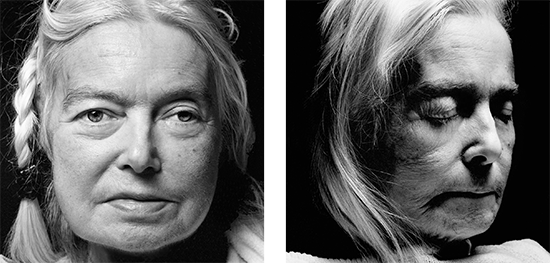
5
Why not imagine that if there is continuing, it is like the wind that rises and falls and rises and is never the same, rising and falling and swirling and stopping, and out of nowhere being gentle and out of nowhere being violent and vengeful, destroying and creating and going everywhere around the globe, through the night of space, sliding under windowsills and moving on. And does this wind refer to any single moment in its moving as defining itself? As establishing the way in which it is?
In what way does the wind know itself or what it has touched or any of its other experiences? In its continuing and stopping and continuing, in the circumstances from which it arises, in the situations it nurtures, caresses, animates, destroys, it does not refer to past or future, knowing or not knowing, consciousness or utter absence of consciousness.
Shall we call such wind buddhanature? Shall we call such continuing buddhanature?
6
I was 3 years old, and I lay on the dining room floor in the midmorning sun. I pretended I was dead and did not move. I felt the bright heat of the sun pass through me and into the soft green and red weave of the old Oriental rug. I heard voices in the kitchen. I did not move.
Yesterday I was standing in the front yard, looking up at towers of white clouds in the deep blue sky. Could something live there? A squeal of car brakes, then an animal screamed. A robin’s-egg-blue car pulled to the curb. Our dog lay writhing on the pavement in front of it. A small man in shirtsleeves stood anxiously nearby. She did not die immediately, and I watched as her legs trembled, and her eyes spun around in every direction.
Like her, I now bared my teeth and opened my eyes. In the air hundreds of dust motes sparkled like a million alien worlds.
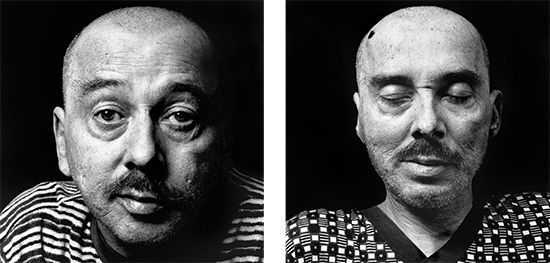
7
I sat in a movie theater between the woman who would soon be my wife and the man who was my close friend and later would collaborate with me on several large theater pieces. We were watching a horror movie; the scene, which was not particularly scary, took place in a surgical operating room. Suddenly the screen was suffused with an intense fluorescent green-white light.
This light, it seemed, poured through my body and between my cells. It felt as if I were coming apart. Suddenly there was a violent pain in my chest. My heart felt like a clenched fist and stopped beating. I moved my ribs side to side, up and down, to loosen the contraction in my chest. I could barely breathe.
At first I panicked, and then I watched. I knew I could let go. The light was there, cold and pale, and I could slide along it. Simultaneously I felt that I still had more to do. My fate with my wife-to-be and my friend was not yet complete. I had to get away from the light. My heart hurt terribly. I forced myself up and stumbled into the aisle, fell, cut my head. People laughed. I picked myself up and crashed through the doors and foyer onto the street. I sat on the curb and covered my eyes.
The man and woman took me home. I went to bed and for the next day wore dark glasses and kept the shades drawn. Anything but the dimmest light, it seemed, could end my life.
8
Death: No one can come to terms with it.
We can no more come to terms with it than we can with living. We know our life will end, and we tell a story of a character who starts, acts, ends. But we ourselves do not know our own beginning, the middle is uncertain and without shape, the end is a horizon with no sky beyond.
Yes. We invent things. We can say the essence, the soul will live forever. We say this invisible part of the dead person, this memory really, is on its own journey. We say this because we think we are on a journey, moving on. We say that after death, the souls of the deceased are judged. We say this because we the living are still judging them.
But suddenly someone you know, someone part of your world is not there. There is a gap.
And there is a corpse smelling sour and rotting. Gray, yellow, chalky, green, bloodless.
And it is disposed of. Then day after day, like a scab forming, the world re-forms with a scar, rippled and more brittle, then fading. We cannot come to terms with it. We can only continue.
A doctor tells you that the little pain you have is an illness that will kill you. He does not know when. There is a sudden wave of great sadness, knowing that now you will be parted from all else, everything you love and know. Feeling expands to the breadth of the sky. A friend says, “Love never dies.” But the sorrow of not comprehending, of not fully appreciating, of not quite knowing how things end, is always incomplete. There is eating and shitting and fucking and sleeping and working. There are moments of accomplishment and failure. There is leaving a mark and forgetting where it was. There is the haunted sorrow of incompleteness, the fragmented.
And slowly, a subtle and illicit allure of coming to an end now comes insidiously to us. The sun warms and burns us. The wind presses and chills. The snow makes the world still and beautiful. The moon waxes and wanes, drawing sea-tides and blood. The soil upholds us and nourishes us and takes our bodies back into itself. And in the night we see the stars, constellations hinting at meanings, their slow traversals implying vaster scales of time.
In darkness, we imagine. Our minds do not cease imagining good and evil, structures that will endure, true pathways and consolations that will never fail. Our minds give impetuous existence to gods and goddesses, to hopes that the world and we are continuing. The stars hint at terms of reference. Our impending death pushes us in an open trajectory, searching for a coming to terms.
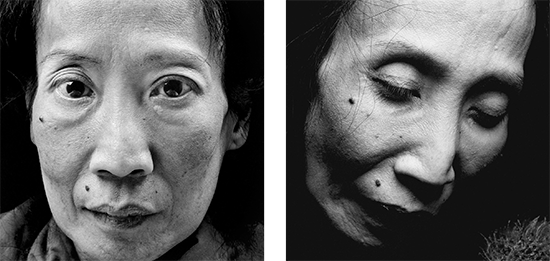
9
The visitors pass along a road and find themselves between a green stagnant pond and an enclosed complex of temples and outbuildings all painted in violent crimson. The walls, the towers, the roof, all are painted the color of fresh blood. This, they are told, is the House of Kali. It is a place of sacrifice and worship, her shrine, her temple, her abode.<
Their guide tells them: her name means destruction, her name means death, her name means time. She is the great wrathful mother, the destroyer and origin of all. Her naked black body is covered with blood that pours from her mouth as she consumes the universe. She wears a necklace of skulls and lightning flashes in her hair. Her three bloodshot eyes are past, present, and future. She smells of blood and semen, feces, urine, and burning flesh. Her voice combines silence and thunder.
They hear people inside the walls chanting to invoke the goddess:
HUM HUM HUM
Surrounded by twisting clouds of oily black smoke
Choking all of space,
Surrounded by shooting sparks of exploding suns, moons on fire,
Galaxies being ripped apart,
Seated on a throne of fire,
Lit from within by raging walls of red volcanic flame,
Your terrifying face and vast sinuous body
Shine like a polished obsidian sky.
O wild joy,
Your hair and eyebrows are burning fire.
O Origin of time, of splendor, of luminous void
You have three eyes, filled with boiling blood.
Primordial luminous omniscience,
From your every glance
Shoot world-consuming lightning bolts of rage.
O all-devouring great bliss, all-devouring terror
Your steel fangs gnash with the sound of thunder.
Saliva and blood glisten on your smiling lips.
Exhausting all wisdom,
You wear a crown of five dried skulls.
O burning origin, O blazing end of life,
The wish-fulfilling jewel glows in your hair.
Origin and end of action and destruction,
You have four arms,
And with your every movement
Worlds rise, flourish, burn, and are dispersed,
As your gestures tear through the luminous heart of space.
Before anything was born,
After all has died,
Here:
You are the zero point.
As rivers of supplicants and devotees enter and leave, the visitors stand uncertainly outside. They hear the bleating of sacrificial goats, the whoosh as the knife flashes down through the air, then a tearing sound and animal gasp, and the thunk as the goat’s head falls onto the ground.
They hear an old woman sing:
“Who are you?”
“Why is everything you do so misleading?”
♦
Section 4 adapted from The Life of Buddha, by A. Ferdinand Herold, trans. Paul C. Blum [1922]: sacredtexts.com
Thank you for subscribing to Tricycle! As a nonprofit, we depend on readers like you to keep Buddhist teachings and practices widely available.
